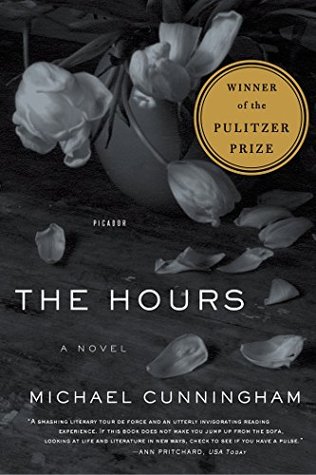More on this book
Community
Kindle Notes & Highlights
Yet it is just this greedy innocence Clarissa appreciates. Don’t we love children, in part, because they live outside the realm of cynicism and irony? Is it so terrible for a man to want more youth, more pleasure?
These days, Clarissa believes, you measure people first by their kindness and their capacity for devotion. You get tired, sometimes, of wit and intellect; everybody’s little display of genius.
It could be a good day; it needs to be treated carefully.
What, she wonders, is wrong with her. This is her husband in the kitchen; this is her little boy. All the man and boy require of her is her presence and, of course, her love. She conquers the desire to go quietly back upstairs, to her bed and book. She conquers her irritation at the sound of her husband’s voice, saying something to Richie about napkins (why does his voice remind her sometimes of a potato being grated?).
With her husband present, she is more nervous but less afraid. She knows how to act. Alone with Richie, she sometimes feels unmoored—he is so entirely, persuasively himself. He wants what he wants so avidly. He cries mysteriously, makes indecipherable demands, courts her, pleads with her, ignores her. He seems, almost always, to be waiting to see what she will do next.
She can’t always remember how a mother would act.
Clarissa, at fifty-two, knows that behind these doors and down these alleys lies nothing more or less than people living their lives.
He is not one of those egotists who miniaturize others. He is the opposite kind of egotist, driven by grandiosity rather than greed, and if he insists on a version of you that is funnier, stranger, more eccentric and profound than you suspect yourself to be—capable of doing more good and more harm in the world than you’ve ever imagined—it is all but impossible not to believe, at least in his presence and for a while after you’ve left him, that he alone sees through to your essence, weighs your true qualities (not all of which are necessarily flattering—a certain clumsy, childish rudeness is
...more
Some have ended their relations with him rather than continue as figures in the epic poem he is always composing inside his head, the story of his life and passions; but others (Clarissa among them) enjoy the sense of hyperbole he brings to their lives, have come even to depend on it, the way they depend on coffee to wake them up in the mornings and a drink or two to send them off at night.
Better to die raving mad in London than evaporate in Richmond.
The brackets around his mouth are so deep you could slip a penny in.
brilliant and indefatigable Leonard, who refuses to distinguish between setback and catastrophe; who worships accomplishment above all else and makes himself unbearable to others because he genuinely believes he can root out and reform every incidence of human fecklessness and mediocrity.
She could, she thinks, have entered another world. She could have had a life as potent and dangerous as literature itself. Or then again maybe not, Clarissa tells herself. That’s who I was.
There is still that singular perfection, and it’s perfect in part because it seemed, at the time, so clearly to promise more. Now she knows: That was the moment, right then. There has been no other.
what she wants—someplace private, silent, where she can read, where she can think—is not readily available.
It seems he is always making a wish, every moment, and that his wishes, like his father’s, have mainly to do with continuance. Like his father, what he wants most ardently is more of what he’s already got
Yes, she thinks, this is probably how it must feel to be a ghost. It’s a little like reading, isn’t it—that same sensation of knowing people, settings, situations, without playing any particular part beyond that of the willing observer.


